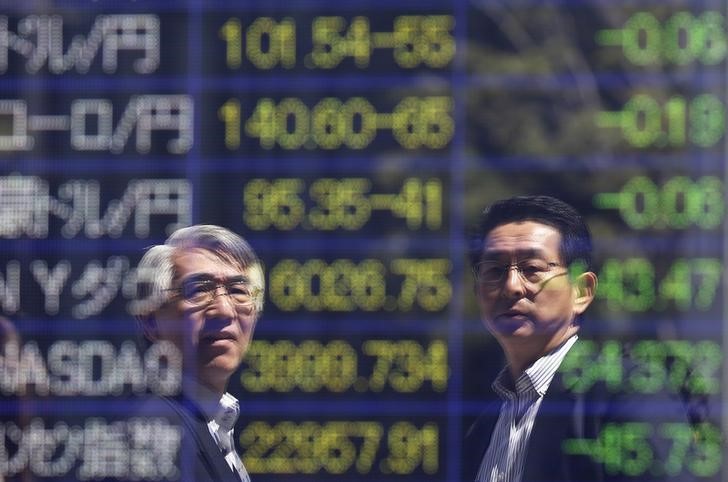Decoding Asian Markets’ Performance Amid Global Economic Strains
In a week where economic data from China coupled with New Zealand and South Korea's monetary policy decisions take center stage, investors are keenly watching for signs of recovery from China's post-lockdown slump. While these regional factors play out, global concerns such as rising borrowing costs, particularly in U.S. and UK bond markets, along with persisting trade tensions between the U.S. and China continue to shape investor sentiment.
Meanwhile, Wall Street is gearing up for its second-quarter earnings season which could potentially influence market trends this week. However, despite these developments on the global stage, Asian markets remain stagnant with iShares MSCI All Country Asia ex Japan ETF (NASDAQ:AAXJ) showing no growth over three consecutive weeks.
Much of this inertia can be attributed to sluggish performance by Chinese markets whose key indicators will kickstart trading activity this week. Consumer price inflation from June is predicted to remain static at 0.2%, while producer price inflation is expected to continue its downward spiral since 2016 - an indicator of deflationary pressures that pose a challenge to governmental efforts aimed at reviving economic growth.
The banking sector has also been hit hard with Hong Kong-listed Hang Seng Mainland Banks Index witnessing a steep fall last week - the largest decline in five years and third biggest since its inception in 2011.
China’s lackluster post-lockdown economy continues drawing attention as it underperforms against consensus forecasts for eleven straight weeks – marking the longest stretch since 2010.
Adding fuel to the fire is Janet Yellen's recent visit to Beijing which ended without any noticeable improvement in relations between the two superpowers, despite her assertion about having “direct” and “productive” talks albeit acknowledging significant disagreements.
Thailand’s Auto Industry Shifts Gears Amid Chinese Investments
Once known for their profitable partnership with Japanese companies like Nissan Motor Co., Ltd. (TYO:7201) dating back decades, Thailand-based Siam Motors now eyes opportunities beyond traditional alliances, especially within the high-end electric vehicle (EV) manufacturing space.
This shift reflects wider changes occurring across Thailand where $1.44 billion worth of investments by Chinese firms have begun reshaping an industry formerly dominated by Japanese automakers such as BYD and Great Wall Motor among others.
Thai family-owned group Siam Motors' move towards potential partnerships with multiple Chinese automakers signifies growing interest in capturing the EV market even as they continue reaping benefits from existing associations.
Japanese car manufacturers who once enjoyed unrivaled dominance over the Thai auto market face increasing competition due to their slow adoption of EV technology compared to aggressive strategies adopted by Chinese counterparts seeking expansion into overseas production hubs including Europe.
As per government data, only around one percent of new cars registered within the country during the previous year were electric vehicles; however, the proportion rose significantly, exceeding six percent during the first quarter current year mainly driven by sales surges experienced by BYD Co Ltd-H (HK:1211) followed closely behind SAIC Motor Corp Ltd (SS:600104), and Tesla (NASDAQ:TSLA).
Oil Market Finds Balance after OPEC+ Supply Cut Announcement
After scoring back-to-back weekly gains first time since May, Brent Oil Futures prices found equilibrium following Saudi Arabia Russia announced measures to tighten supply, thereby signaling strength across the global oil market landscape
Brent futures traded near $78 per barrel reflecting increased speculator confidence. Despite positive momentum, oil remains approximately 9% lower compared earlier part-year primarily owing tepid economic recovery witnessed by China, alongside proactive monetary tightening by central bank policymakers worldwide
A strong US employment report on Friday also keeps Federal Reserve on track to boost interest rates month, creating headwinds for crude prices.
Meanwhile, the US made an announcement Friday regarding the purchase additional six million barrels of crude to its Strategic Petroleum Reserve, slowly refilling emergency stockpiles from their lowest point in forty years.
